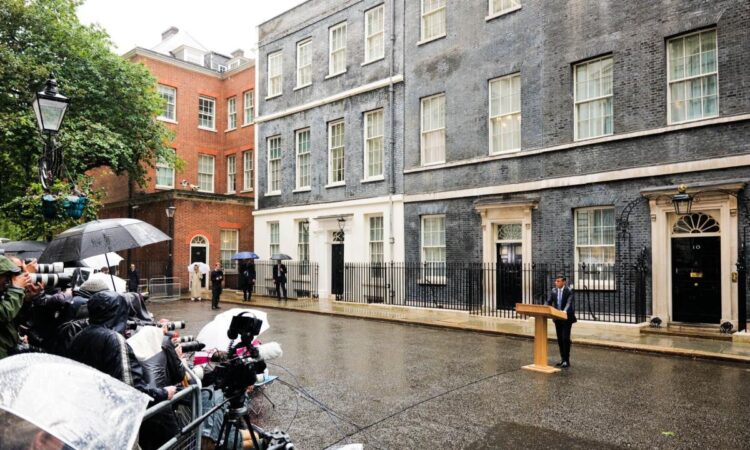
(Bloomberg) — All UK political parties need to be honest about the painful fiscal choices facing the next government during the coming election campaign, the Institute for Fiscal Studies think tank said.
Most Read from Bloomberg
The challenge awaiting the winner is greater than any government has faced since at least the 1950s and wishful thinking that growth will come to the rescue would be to rely on getting “miraculously lucky,” said IFS Director Paul Johnson.
On Wednesday, Prime Minister Rishi Sunak fired the starting gun on a July 4 election. The ruling Conservatives and Labour opposition are expected to publish their manifestos within a fortnight and are already claiming the other’s plans are undeliverable.
Both have pledged to stabilize a debt burden that is now close to 100% of GDP. However, whoever wins will be hemmed in by high debt, high interest rates and low growth, the IFS said.
The parties have three genuine options, Johnson said. To accept the “painful” spending cuts for public services currently planned, to raise a tax burden that is already due to hit a near 80-year high, or to borrow more and fail to stabilize the debt as a share of GDP.
Johnson has long argued for an upfront debate about the difficult choices the country faces but accepted politicians will “be reluctant to tell us which of these they would opt for” during an election campaign. “That doesn’t mean we should refrain from asking them,” he said.
Public services like justice and local government are already struggling but face deeper cuts. Spending on everything other than debt interest is set to fall from 40.8% to 39% of national income over the next parliament, Johnson said.
To stabilize debt as a share of GDP, it will need to raise substantially more in tax than it spends on everything other than debt interest. The UK last ran a primary surplus 23 years ago.
“Money is tight. Public services are creaking, taxes are at historically high levels, and both parties are hemmed in by their very clear pledges to get debt falling. To avoid cuts to key public services in the post-election Spending Review would require further tax rises,” Johnson said.
“We could get miraculously lucky with growth and escape having to make these tough choices. But we might not. Just because thousands of English and Scottish football fans are crossing their fingers and hoping for the best this summer doesn’t mean that the next Cabinet should do the same.”
Most Read from Bloomberg Businessweek
©2024 Bloomberg L.P.






